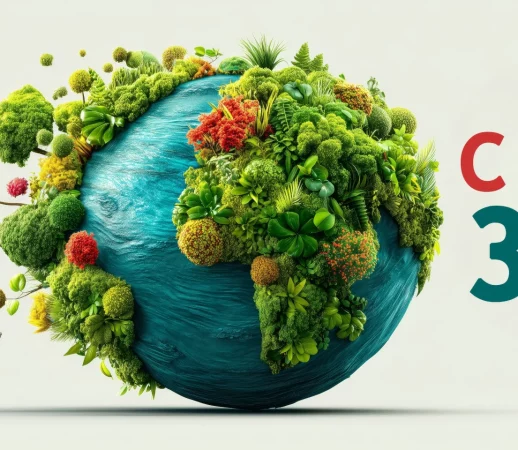
Sustainable tax Türkiye: Tax instruments on the path to sustainability
With the tax instruments gradually introduced over the years to promote sustainability, Türkiye aims to move closer to global climate targets and align with EU regulations such as the Carbon Border Adjustment Mechanism (CBAM).
The concept of sustainability is no longer limited to environmental policies; it has become central to tax policy as well. Sustainable tax practices are not only designed to raise public revenues but also to promote environmental protection, social justice, and economic stability. This is particularly critical for developing countries like Türkiye, where climate challenges and income inequality are prominent.
Sustainable tax instruments in Türkiye
Türkiye has introduced several tax instruments to support sustainability:
- Environmental cleaning tax (ÇTV): Collected via water bills by municipalities, this tax funds waste collection and environmental services.
- Motor vehicles tax (MTV): Vehicle emissions have been included in the tax calculation since 2018.
- Plastic bag fee: Introduced in 2019, single-use plastic bags are sold for TRY 0.50 to reduce consumption.
- Energy efficiency incentives: VAT and SCT exemptions are offered for renewable energy investments and energy-efficient products.
In 2025, Türkiye’s Banking Regulation and Supervision Agency (BRSA) introduced the green asset ratio, encouraging banks to finance environmentally sustainable projects. Additionally, mandatory sustainability reporting was introduced in 2024 for large companies exceeding certain thresholds in assets, revenue or employment.
Contact us if you have any tax-related questions concerning environmental and sustainability issues.Mustafa Bulut, CPA, Partner, ECOVIS DİPLOMAT DENETİM VE YMM A.S., Izmir, Türkiye
Why is it relevant now?
Türkiye aims to align with global climate goals while adapting to EU regulations such as the CBAM. At the same time, its current tax structure relies heavily on indirect taxes – over 65% of total revenue – placing a greater burden on low-income groups. At the same time, environmental taxes account for only 1.2% of total revenue, far below the EU average of 2.4%. These figures highlight the urgent need for a shift towards more equitable and sustainable taxation.
Conclusion and recommendations
To achieve its green transformation and economic resilience, Türkiye must restructure its tax system. This includes increasing environmental taxes, shifting to direct taxes such as income and wealth taxes, incentivising green investments and combating informality using digital tools. These reforms would not only support climate goals but also promote social equity and long-term fiscal balance, say the Ecovis advisors.
For further information please contact:
Mustafa Bulut, CPA, Partner, ECOVIS DİPLOMAT DENETİM VE YMM A.S., Izmir, Türkiye
Email: mbulut@diplomatymm.com.tr
Efil Çetin, CPA, ECOVIS DİPLOMAT DENETİM VE YMM A.S., Izmir, Türkiye
Email: ecetin@diplomatymm.com.tr




